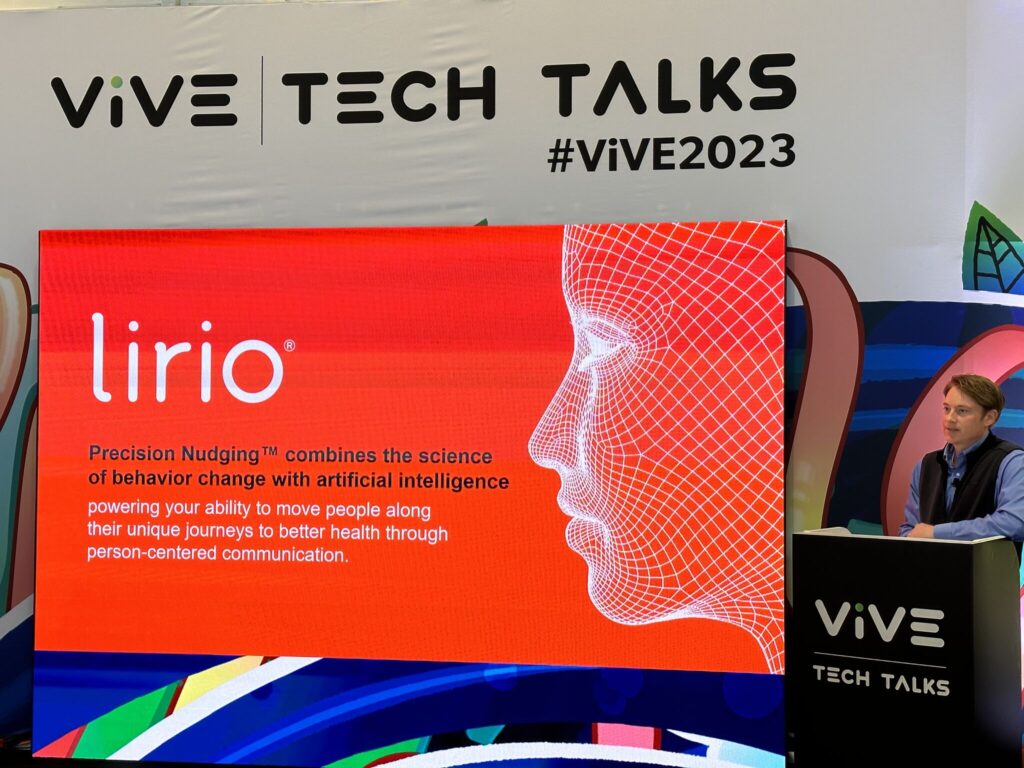Lirio, which uses artificial intelligence and behavioral science to hyper-personalize healthcare consumer experiences, has been awarded a Top Workplaces 2023 honor by Knoxville Top Workplaces. The company was recognized for the second time it participated in the program, has also received recognition as a national Best Workplace by Inc. Magazine, and received the Pinnacle Award for Best Mid-Sized Company by the Knoxville Chamber.
Patrick Hunt
Lirio and Truth Initiative Partner on Precision Nudging™ Intervention for Tobacco Cessation
by Patrick Hunt | 06 Jul 2023 | Blog, Digital Health, News
Truth Initiative’s EX Program is partnering with Lirio, a behavioral science tech company, to expand its member marketing capabilities. Through this partnership, they’ll harness the power of AI to drive even greater reach of their tobacco cessation program to employees and members.
Spring Health Tech Conference Season Observations
by Patrick Hunt | 03 May 2023 | Artificial Intelligence, Blog, Digital Health, Health Equity
March went out like a lion in the health tech world, with ViVE 2023 in Nashville the last week of the month, and spring conference season continued with HIMSS 2023 […]
Lirio and Ayin Health Solutions Announce Value-Based Care Partnership
by Patrick Hunt | 28 Apr 2023 | News
Lirio, LLC today announced a new strategic partnership with Ayin Health Solutions, Inc. a leading provider of population health management services and technology solutions for community-based healthcare delivery.
Lirio and Cone Health Announce Strategic Partnership
by Patrick Hunt | 21 Mar 2023 | Health Equity, News, Uncategorized
Partnership aims to improve the patient experience, close gaps in care, and advance health equity Knoxville and Nashville, Tenn. — Lirio, LLC announced a new strategic partnership with Cone Health, […]




